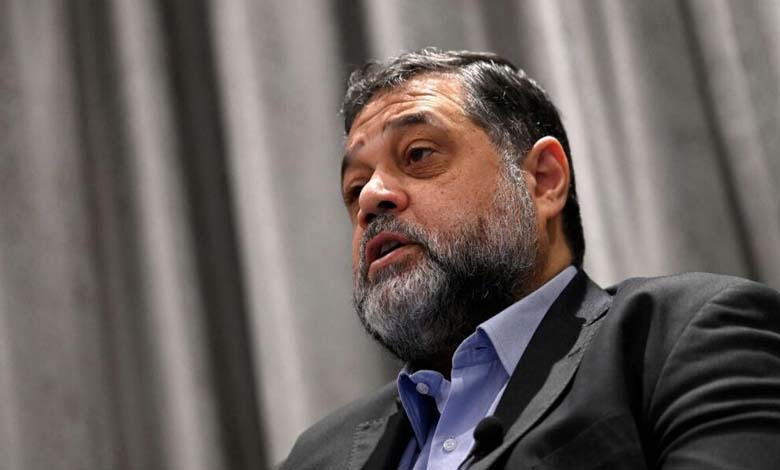The body crisis traps Hamas: a promise and its obstacles

Hamas’s pledge to return all the remains of Israeli hostages may falter due to the immense difficulties of excavation in a war-ravaged Gaza, threatening the fragile ceasefire and ongoing agreement.
On Friday, Hamas vowed to deliver to Israel all the bodies of hostages still in Gaza, in accordance with the U.S.-brokered ceasefire deal, while acknowledging the challenge of recovering remains buried under rubble or trapped in tunnels.
-
Hamas bullets dictate the ceasefire in Gaza… as international pressure mounts for disarmament
-
Why is Hamas considered a threat to Germany’s security?
On Thursday evening, U.S. President Donald Trump warned Hamas sharply, especially after the group increased its presence in Gaza since fighting stopped on October 10 and released a video on Tuesday showing the execution of people it accused of being “Israeli collaborators.”
Trump stated, “If Hamas continues killing people in Gaza — something that was not part of the deal — we will have no choice but to go in and kill them.”
Later, Hamas reaffirmed its “commitment” to the ceasefire and its “determination” to hand over to Israel all remaining bodies of hostages within the devastated enclave.
-
Hamas executions in Gaza: consolidation of power or elimination of rivals?
-
Hamas begins purging militias accused of collaborating with Israel
The group said in a statement that returning the bodies “may take some time,” since some were buried in tunnels destroyed by Israeli strikes, while others remain under collapsed buildings.
It stressed its “adherence to the agreement and its intention to fully implement it, including the delivery of all remaining bodies.”
The statement came after Israel accused Hamas of violating the ceasefire terms, which stipulate that all hostages, both alive and dead, must be returned within 72 hours of the truce taking effect—by Monday noon.
-
Source: Hamas has relinquished control of Gaza and will not take part in the transitional phase
-
After the Arrest of a Hamas Cell in Berlin: The Brotherhood’s Danger Infiltrates Europe
Hamas released 20 live hostages in exchange for Israel’s release of about 2,000 Palestinian prisoners but handed over only 9 of the 28 bodies agreed upon.
Hamas added that “the bodies it was able to access were handed over immediately,” while recovering the others requires heavy equipment to remove debris—equipment currently unavailable due to Israel’s blockade.
On Thursday, Turkey announced that it had dispatched a rescue team from its disaster and emergency agency, AFAD, to assist in the search for the hostages’ remains in Gaza.
-
Gaza Residents Back Trump’s Plan and Shout at Hamas: Enough
-
Trump’s Deadline for Hamas Nears Its End… Gaza’s Displaced Caught Between Hardship and the Inability to Escape
Israeli Prime Minister Benjamin Netanyahu reiterated the same day his determination to bring back all the remains of hostages held by Hamas.
During a ceremony marking the second anniversary of the October 7, 2023, attack, he said, “We are determined to bring all the hostages home.”
That same day, the Hostages and Missing Families Forum urged the Israeli government to delay the next stages of the deal with Hamas unless the remaining 19 bodies were returned.
“They’re digging,” Trump said on Wednesday in remarks urging patience. “They’re finding many bodies.”
-
Refusal to Apologize for the Cost of War: Senior Hamas Official Distances Himself from Gaza Civilians’ Suffering
-
Recruitment, Tunnels, and Surprises: Israeli Intelligence Unveils Hamas’s Plans
In Gaza, Hamas’s Ministry of Health and Nasser Hospital in Khan Younis reported Thursday that Israel had returned the bodies of 30 Palestinians, bringing the total to 120.
Under the ceasefire agreement, Israel must return 15 Palestinian bodies for each Israeli hostage’s remains it receives.
Meanwhile, Israeli Foreign Minister Gideon Saar said on the sidelines of a Mediterranean ministers’ meeting in Italy that “the Rafah crossing will likely open on Sunday.”
-
Quarter of a million displaced from Gaza City as Israel vows to defeat Hamas
-
Israel Fails to Assassinate Khalil al-Hayya, Hamas’ Voice Abroad
Israel controls all entry points to Gaza and, according to the agreement, must reopen the Rafah crossing linking the enclave with Egypt to allow humanitarian aid to enter.
However, Israeli authorities said Thursday that the reopening date would be determined later, adding that no humanitarian aid would pass through for the time being.
The first stage of the agreement involves the ceasefire, the release of hostages, and the partial withdrawal of Israeli forces from parts of Gaza.
Subsequent phases include the disarmament of Hamas, amnesty for its leaders who surrender their weapons, continued Israeli withdrawal, and the establishment of post-war governance for Gaza — all still under negotiation.
-
Gaza Truce: Trump Anticipates a Deal Soon, Hamas Responds
-
Gaza Truce: Washington Delivers Principles of a Comprehensive Deal to Hamas via Israeli Mediator
-
Hamas confirms the death of Mohammed al-Sinwar, al-Haddad expected to succeed him
-
Intensive Mediation Efforts… Details of the Last Chance Negotiations Between Israel and Hamas












